Welcome to this series of interactive workshops for which Westpac has partnered with AlphaZetta. This dynamic, interactive series of learning activities and virtual workshops will be delivered between now and the end of March 2022.
Series rationale
We know that data is critical for decision-making across Westpac. And you have knowledge for your clients that will help to create value. But do you sometimes feel you’re being ordered around by your clients and not able to exercise your knowledge and expertise? That they aren’t really listening to what you have to say? You want to be an advisor and add value to the process, but your clients aren’t always allowing you to do that.
AlphaZetta will bring a series of interactive workshops that will change you from being a service provider to being a partner. To empower you to have a seat at the table and make a real contribution to creating value for you, your client and the organisation.
Session details will be provided here and updated accordingly. They will be delivered via Zoom. Details we be provided with session invitations sent directly to participants.
Course Leader

Over the past 25 years, Professor Lytle has taught, presented, and consulted in organisations and universities across the globe.
She has delivered some of the highest rated programs at business schools including the Kellogg Graduate School of Management at Northwestern University, the Ross School of Business at the University of Michigan, the Hong Kong University of Science and Technology, The Sasin School of Business at Chulalonghorn University, The Australian Graduate School of Management at the University of New South Wales, The Melbourne Business School at the University of Melbourne and the Monash Business School at Monash University, where she served as Professor and Director of Leadership.
She is the Managing Director of Lytle and Associates Pty Ltd, and a partner of AlphaZetta, working with public, private and non-profit organisations across negotiation, conflict management, emotional intelligence, leadership and managing people for high performance. A sample from her diverse list of clients includes Air New Zealand, ANZ Bank, APM Terminals, AFP, BHP Billiton, Boeing Corporation, BT Financial Group, Care Australia, City of Wagga Wagga, David Jones, DSTO, EBay Inc., Fenton Stephens, Goodyear Dunlop, KPMG, Metcash, Network 10, Pfizer, Qantas, RANZCO, Telstra and United Overseas Bank.
Anne has published in top academic journals, is an active member of the Academy of Management and is a board member and Past-President of the International Association for Conflict Management. She was the co-founder and creator of Leda, a digital leadership development platform based on the neuroscience of behaviour change.
Core sessions
Negotiating deals: Claiming & creating value for data professionals
Workshop 1 Details
Sessions: 4
Session duration: 2-3 hours, start either 9am or 1pm
Cohort size: ~40 people
Session 1: Nov 9-11 2021
Session 2: Dec 13-16 2021
Session 3: Feb 21-24 2022
Session 4: April 28 2022
Session 1
Tuesday 9 November 9-12: CORE 1A
Tuesday 9 November 1-4pm: CORE 1B
Wednesday 10 November 1-4pm: CORE 1C
Thursday 11 November 9-12: CORE 1D
Thursday 11 November 1-4pm: CORE 1E
Session 3
Monday 21st February 1-3: CORE 3A
Tuesday 22nd February 9-11: CORE 3B
Tuesday 22nd February 1-3pm: CORE 3C
Thursday 24th February 9-11: CORE 3D
Thursday 24th February 1-3pm: CORE 3E
Session 2
Monday 13 December 1-4: CORE 2C
Tuesday 14 December 9-12: CORE 2A
Tuesday 14 December 1-4pm: CORE 2B
Thursday 16 December 9-12: CORE 2D
Thursday 16 December 1-4pm: CORE 2E
Session 4
Thursday 28 April 1-4pm: all groups
Description
In these days of scarce resources, heightened uncertainty, and flattened organisational structures, negotiation is a set of skills critical for
data professionals’ success. Whether negotiating scope of work, resources for your project, or uncovering and resolving issues with your
internal stakeholders or business partners, knowing when and how to negotiate can make all the difference in achieving success.
While individuals across many roles will have the opportunity to negotiate and influence regularly, they often lack an integrated
analytical framework to negotiate more strategically and achieve more consistent outcomes. The purpose of this offering is to provide
that framework, as well as a wealth of tactics and practical evidence-based recommendations founded on cutting-edge empirical
research.
Learning Objectives
- To learn the theory and practice of preparing and implementing negotiations through Claiming and Creating value techniques
- To understand negotiation as an opportunity to create value for participants, their internal or external clients, their organisations and their stakeholders
- To provide practical strategies that can be implemented immediately upon return to work to significantly improve negotiated outcomes.
Learning Methods
- Participants will be introduced to claiming and creating value techniques through their experience in a series of negotiation simulations.
- Debriefs and discussions will take place after each simulation or case presenting evidence-based tools and strategies, supplemented by live examples
- Participant cases will be examined in “live consulting” sessions – what’s worked and what hasn’t, and recommendations for improving outcomes
- Each individual will create an action plan to apply new skills back in the workplace
- Post-workshop activities and peer coaching trios will apply new skills and embed learning.
Preparation
There are a few steps to prepare for the session. It is critical you do these, otherwise you won’t maximise your ROI from the session.
1. Please watch the introductory video (17 minutes) to set the stage and give you instructions for the negotiation simulation you will do over the next week. I have attached the associated slides below for your reference.
2. Please prepare for the negotiation simulation “The Factory Sale” by reading your one page confidential role instructions for Chemtech or Bolight that was sent to you via email. (5-10 mins).
3. Contact your partner ASAP and arrange a slot of 30 minutes before Monday 8 November COB to negotiate the simulation.
4. Complete the submit the short outcome survey right after you finish your simulation (see link sent to you via email)
5. If for any reason the survey link doesn’t work for you, a word document was also attached to your email so you can complete instead and email to me at anne.lytle @alphazetta.net
I look forward to seeing you at the workshop, and have fun negotiating! If you have any issues or questions, please contact me at any time on the email above.
Further Reading & Resources
BOOKS
Getting to Yes. Roger Fisher & William Ury, 2011.
This is the best-seller classic. A very easy read that introduces you to negotiation fundamentals with lots of stories and examples.
Negotiation Genius. Deepak Malhotra & Max Bazerman, 2015.
This is an evidence-based, easy reading, practical book by two very well respected leading Harvard negotiation researchers. A great combination between theory and practice.
The Mind and Heart of the Negotiator. Leigh Thompson, 2021 (global edition).
This is a bit more academic, and reports a lot of evidence-based learning about negotiation practice. A bit more academic than Negotiation Genius, and very thorough about a whole host of negotiation situations and topics.
LINKS TO ARTICLES/VIDEOS
Investigative Negotiation. Harvard Business Review, 2007.
Four reasons why internal negotiations are harder than external ones. Insead, Horacio Falcao, 2017.
For some fun, here is a link to a 2.5 minute clip from “The Office” that summarises some important points about the negotiation concepts we discussed in the workshops. I highly recommend it:
EDITED RECORDING OF SESSION 4
Chapters within the video:
- Welcome & Recap (0.00)
- Opening & Roadmap (06:20)
- DI&AG Craft theme: Stakeholder Management, Consulting & Leadership
- Boosting your influence (12:55)
- Example: Jane Sharp
- Claiming Value (33:00)
- Examples: Katie Martin, Marcela Whitehead
- Creating Value (55:45)
- Examples: Jen Griffiths, Joe Taylor, Mark Holliday
- The Negotiation Preparation Template (1:16:25)
- Summary & Action Planning (1:22:20)



